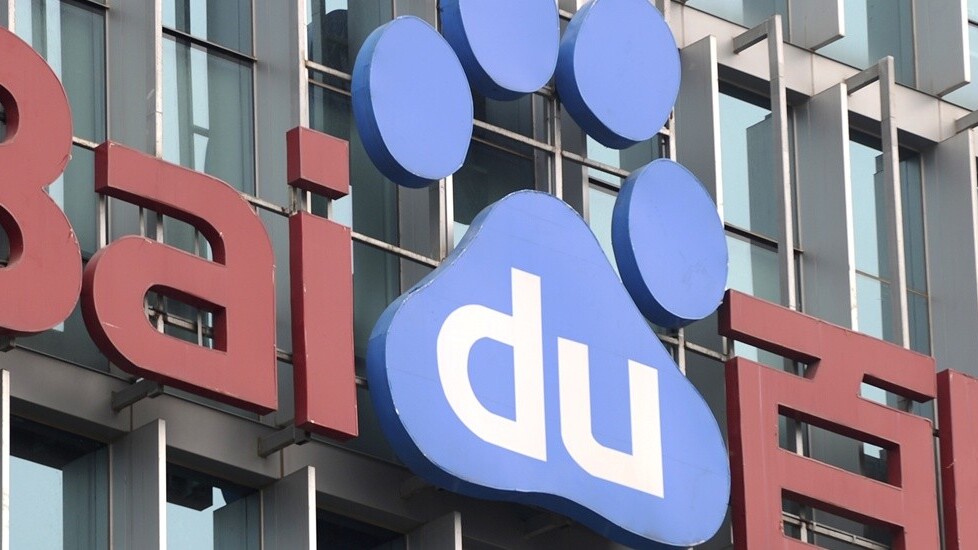
Deep learning has been a hot topic in recent times, particularly after Google brought it to the forefront of the tech industry with Google Brain that started in 2011. Early this year, the internet giant went further to step up its efforts in deep learning with its acquisition of artificial intelligence startup DeepMind, scooping up its talented team.
There is, however, another serious contender in the deep learning space that most people in the US may not have heard of — and that’s Baidu, commonly known as ‘China’s Google.’
Hiring away a Google pioneer
How serious is Baidu? Well, in May this year, the company snapped up the well-known artificial intelligence researcher, Andrew Ng, who started the Google Brain project. Ng is also the co-founder of online education startup Coursera.
With the arrival of Ng at Baidu’s Silicon Valley operations, the company’s deep learning efforts have gathered pace. Robin Li, the chairman and CEO of Baidu, said in the company’s second quarter earnings that it has deepened its investment in deep learning, “which is already yielding near term enhancements in user experience and customer ROI (return on investment) and is expected to drive transformational change over the longer term.”
Kai Yu, the head of Baidu’s Institute of Deep Learning, told TNW in a recent interview he thinks that today, only Baidu and Google are “capable of developing large-scale deep learning systems for all kinds of applications” due to how advanced the technology is and how much investment the company has sunk into it.
First and foremost, deep learning helps to propel Baidu’s core business ahead. Yu told us how the company is applying deep learning techniques to its day-to-day operations:
One thing is using deep learning to significantly improve user experience. That means using deep learning to improve the accuracy of speech recognition, the accuracy of image recognition and image search — but more importantly we have used deep learning to significantly boost our search relevance, especially significantly improving long queries.
One side is improving user experience, the other side is using deep learning to improve the revenue. In our ad system, because the majority of Baidu’s income is from online advertising, a central piece of online advertising is to precisely predict which ads are relevant (to users).
More than search
However, with deep learning, Baidu is becoming so much more than just a search engine.
With the explosive growth of mobile, particularly in China — where mobile has become the number one way to go online, surpassing PC access for the very first time, deep learning comes in particularly useful for images.
Yu told us that because of the increased use of mobile phones, there has been an explosive growth in the volume of image data because users are generating huge amounts of photos, more than ever.
“And each image’s data is so relevant to users’ intentions and interests — in other words, if you can decipher the content from an image, you understand the users’ interests better,” he said.
And image recognition is an area which Baidu is proud of its progress. Yu revealed that internal evaluations show Baidu recognizes images more accurately than Google for 68 percent of cases it tested out, 14 percent of the case it does worse than Google, while in 18 percent they perform about the same.
Yu revealed that ultimately Baidu wants to build the mobile phone into a personal assistant with the help of deep learning, that is, training a machine to recognize triggers and interpret them accordingly.
We want to make a machine that can see and understand like human beings, and then your cellphone can become a very powerful device; it can become like your assistant. Your assistant can see what you’re seeing, and then can provide all the information which is relevant. Much more powerful than a search engine. Our backend cloud computing, the whole internet, will become your second brain, if you have such a powerful assistant.
Big data
Without big data though, there wouldn’t be deep learning. And big data is something that search engines have plenty of, given that so many people conduct search queries every day.
Zhang Tong, the head of Baidu’s Beijing big data lab, told TNW that increasingly there is more emphasis on how to extract intelligence from the massive amounts of data that the company gathers on a daily basis, joining the ranks of Google, Microsoft and Facebook among others.
How does big data work to come up with useful results? Zhang said that other than data, building a model is the key.
“You see user behavior data, track those users, then look at how other users behave, what they look at, and you check whether they will click on it or like those items. Based on that, you model. In our case, we build very large-scale models, huge models, so they compile a lot of users and a lot of factors and try to predict what users like and want to see,” he said.
To showcase what Baidu can do with its big data, it has come up with interesting nuggets like a heat map to let users watch in real-time the world’s largest annual migration during Chinese New Year, as well as predictions. Recently it came up with an interactive map that predicts the spread of influenza, hepatitis and sexually-transmitted diseases across China, and even rightly predicted Germany as the World Cup winner.
“Prediction is a way to show what you can extract from the data, it’s a showing of the intelligence,” Zhang said. He revealed that prediction also lets users get a glimpse into other parts of the Baidu business, such as a gauge of the click-through-rate of search results and ads.
Robotics projects
Google has been in the limelight recently for its efforts at creating self-driving cars and a new generation of robots, which are possible because of machine learning of big data. Basically this means you train the machine (i.e. cars or robots) to learn from triggers and respond accordingly. Baidu has also followed in Google’s footsteps to work on partial self-drive cars, which will have a steering wheel but can technically be operated without a driver.
Yu declined to reveal what else Baidu has been working on in terms of robotics, but did reveal the company has some “really big projects” going on.
We can only wait and see what Baidu has up its sleeves, but with its focus on big data and deep learning, it looks like the world may have to start taking Baidu seriously as it hones its techniques and can easily apply them elsewhere. After all, Baidu has plenty of potential — it largely caters only to a Chinese audience now, and just recently launched a localized search engine in Brazil.
Headline image via Liu Jin/AFP/Getty Images, images via Wikimedia, Getty Images
Get the TNW newsletter
Get the most important tech news in your inbox each week.









